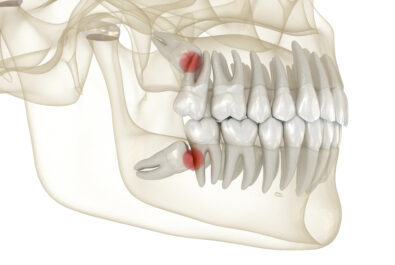Oral examinations are a vital part of effective dental care. By routinely performing a comprehensive exam, or checkup, your dentist can accurately diagnose existing dental issues and recommend appropriate, custom treatment options. But what exactly does your oral examination reveal, and what can it tell your dentist about your dental health?
During an exam, your dentist will perform a visual inspection and use digital imaging technology to inspect your teeth, gums, and mouth and throat tissues to ensure that everything is healthy. If an issue prevents itself, such as one of those listed below, then your dentist will consult with you to explain your condition and your options for addressing it.
Tooth Decay
Tooth decay is the driving force behind cavity development, and in severe cases, can lead to the need for root canal treatment. Before it becomes severe, however, an oral examination can reveal the earliest signs of tooth decay, like weak, hard-to-spot areas of tooth enamel. When detected early, tooth decay can be treated (and sometimes reversed) to prevent extensive damage to your tooth.
Periodontal Disease
Like tooth decay, the effects of periodontal disease (or gum disease) can be severe, including the loss of one or more teeth. Also like tooth decay, though, periodontal disease can be detected early through regular examinations, and can be prevented or treated before it causes extensive trouble.
Impacted Wisdom Teeth
When wisdom teeth, or third molars, become impacted, you might not feel the discomfort until they become troublesome. During an oral examination, your dentist can utilize digital X-rays to check the condition of your wisdom teeth and whether or not they should be extracted to save the rest of your teeth.














